65 days in Mariupol: a story of siege and occupation
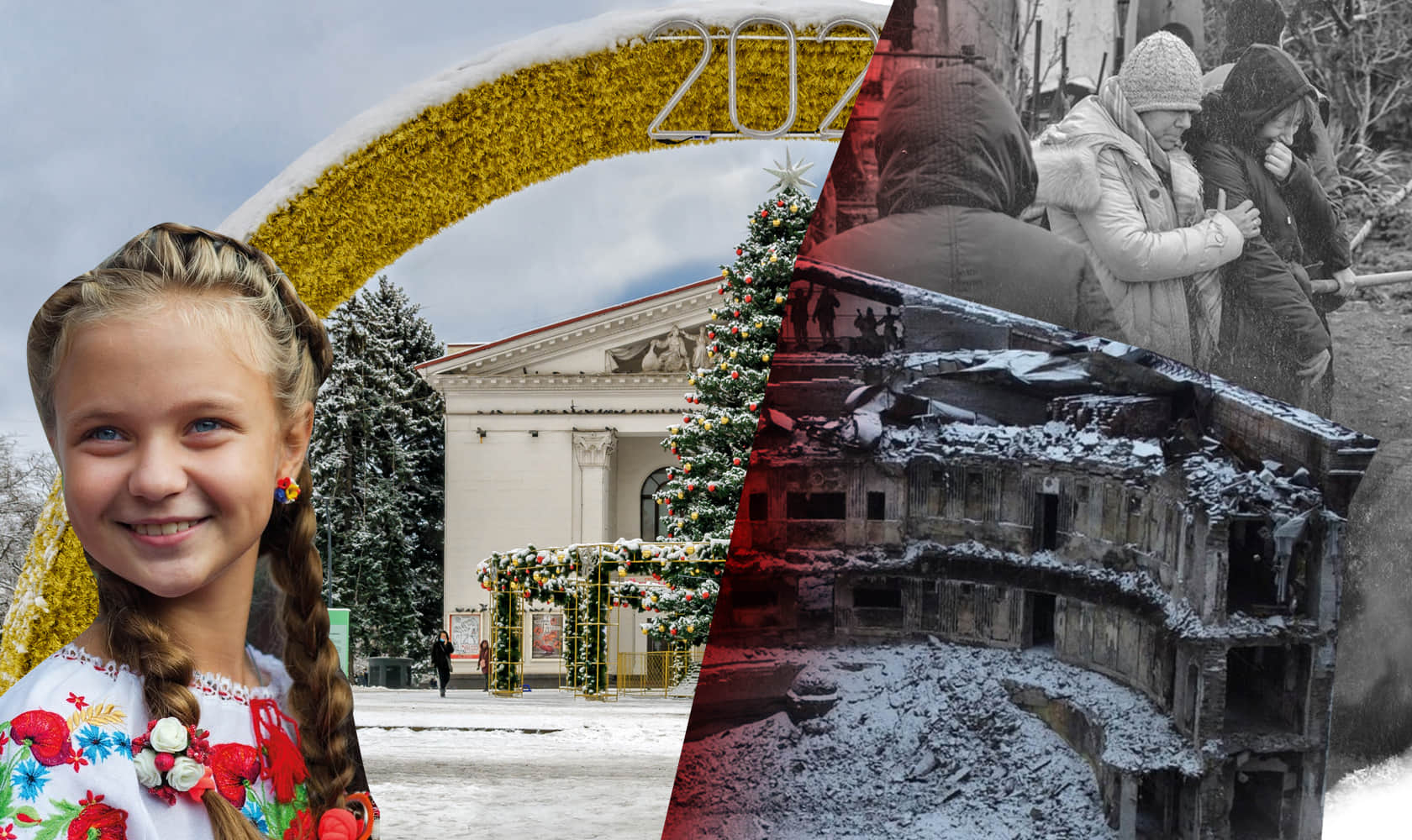
It’s the evening of 5 February 2022, and several hundred people have gathered in the auditorium of the Mariupol Chamber Philharmonic for the premiere of "Avalanche", a play by the Turkish playwright Tuncer Cücenoğlu.
"Subject to quarantine requirements in accordance with the epidemic safety level," the organisers have warned sternly.
The plot of the play appears to have nothing to do with this Ukrainian coastal city.
It’s about the inhabitants of a fictional village surrounded by mountains on all sides, who talk in whispers for nine months of the year because they are so afraid of avalanches.
"Just imagine – boom, and that’s the end of us! And nothing can be done about it," one of the protagonists says.
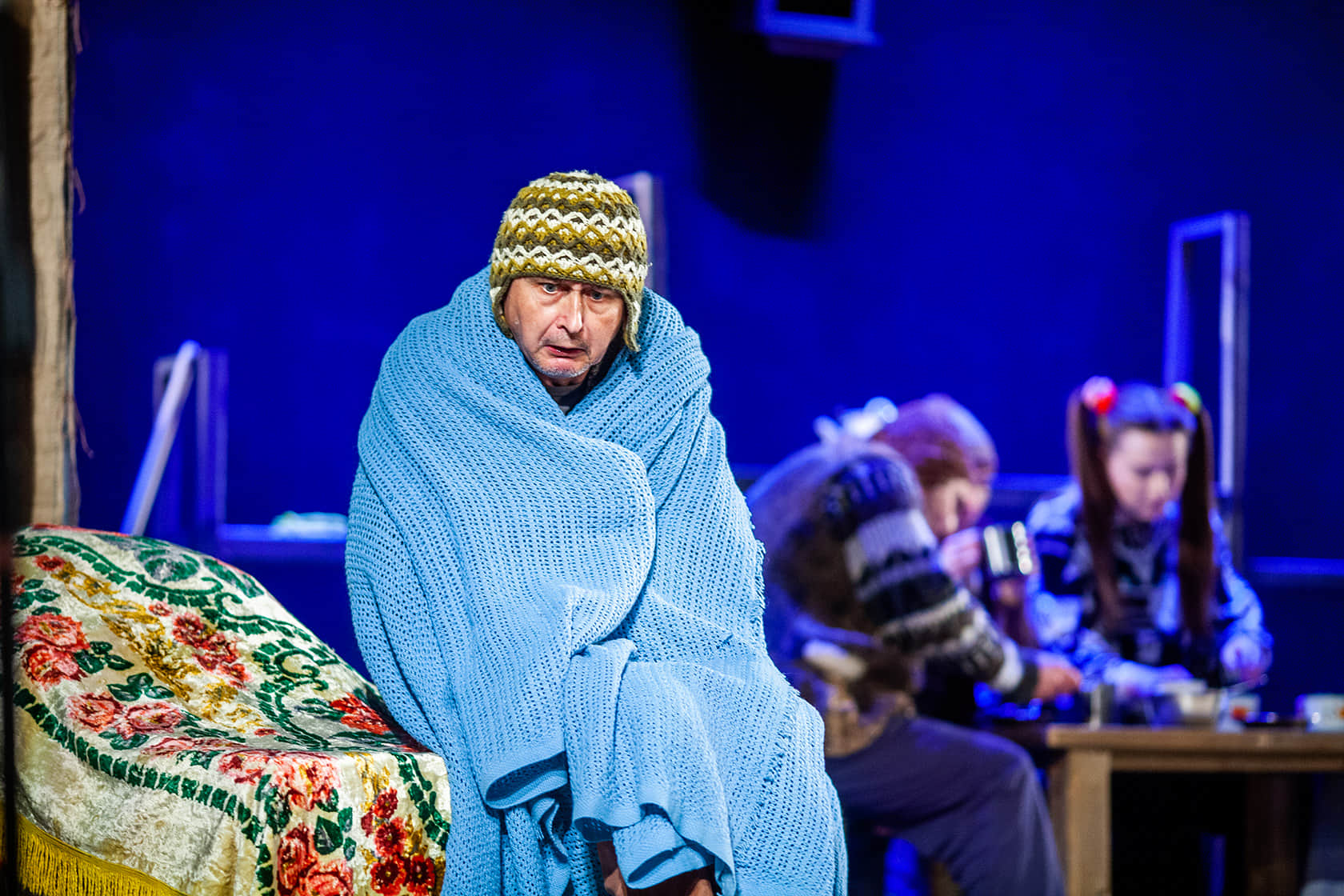
Within less than a few months, Mariupol – home to half a million people – would be transformed into a terrifying apocalyptic scene: the largest mass grave in 21st-century Europe.
Some of its residents – over 200,000 according to Mayor Vadym Boichenko – would manage to get out of the besieged city, which was later occupied by the Russians.
Tens of thousands would die as they lay trapped under the rubble, their bodies turning into construction debris that would later be recycled by the "liberators". Russia needs plenty of crushed concrete.
Yevhen Sosnovskyi, a 58-year-old photographer from Mariupol, was one of the actors performing in "Avalanche" on the evening of 5 February.
It would be 65 days after the invasion began before Yevhen would be able to leave the occupied city, passing dozens of Russian roadblocks.
It was thanks to Yevhen that the world learned about the diary of his great-nephew, 8-year-old Yehor Kravtsov.
"My two dogs and my grandma Halia and my favourite city Mariupol are dead," Yehor wrote in the spring of last year.
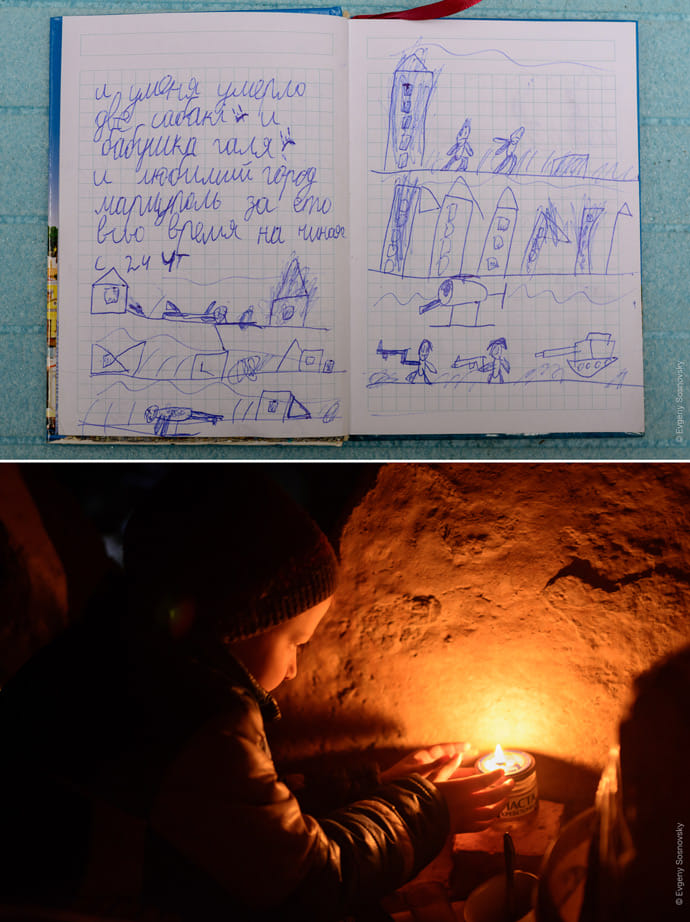
"Right now I don't know how Mariupol can be liberated," Yevhen Sosnovskyi says 17 months later. "You can liberate the territory. But even if it is rebuilt, it will be a city with a different soul.
On 11 September 2001, terrorists destroyed two skyscrapers in New York. People died. Now there is a memorial at that place.
There are thousands of such places in Mariupol. There was a building where dozens of people were still in the rubble. The Russians made a road on that street using recycled debris that had human remains in it. There’s the Drama Theatre where hundreds of people died in the basement. I can't imagine how plays could be put on there in the future.
For me, all that’s survived there is the graves of my parents and the sea."
Four days before disaster
Run to the seashore, go onto the pier, breathe in the salty air of the Sea of Azov, and run along the coast in the opposite direction – an eight-kilometre (five-mile) morning jog.
Central Kyiv, where we met Yevhen Sosnovskyi, is nearly 800 km away from Mariupol. But distance is not a problem when it comes to a city that exists in memory and in photographs.
He points out the one-storey houses that usually go unnoticed by travellers.
The centre of Mariupol at night, all lit up by the illuminations.
"Even in European cities I haven't seen anything like this. We decided to go all out, and it was really beautiful." My guide is so proud of his city.
The former Pioneers’ Palace where, as a member of a theatre group, young Zhenia [the short form of Yevhen] first appeared on stage in a play about the children of war – World War II. The name of the theatre group, naturally, was "Red Tie" in Russian, after the Pioneers’ red neckerchief.
The Clock House [a historic landmark of Mariupol which used to be the workshop of the internationally renowned genius, mural artist Victor Arnautoff]. It was badly damaged in the spring of 2022 and demolished in December that same year.
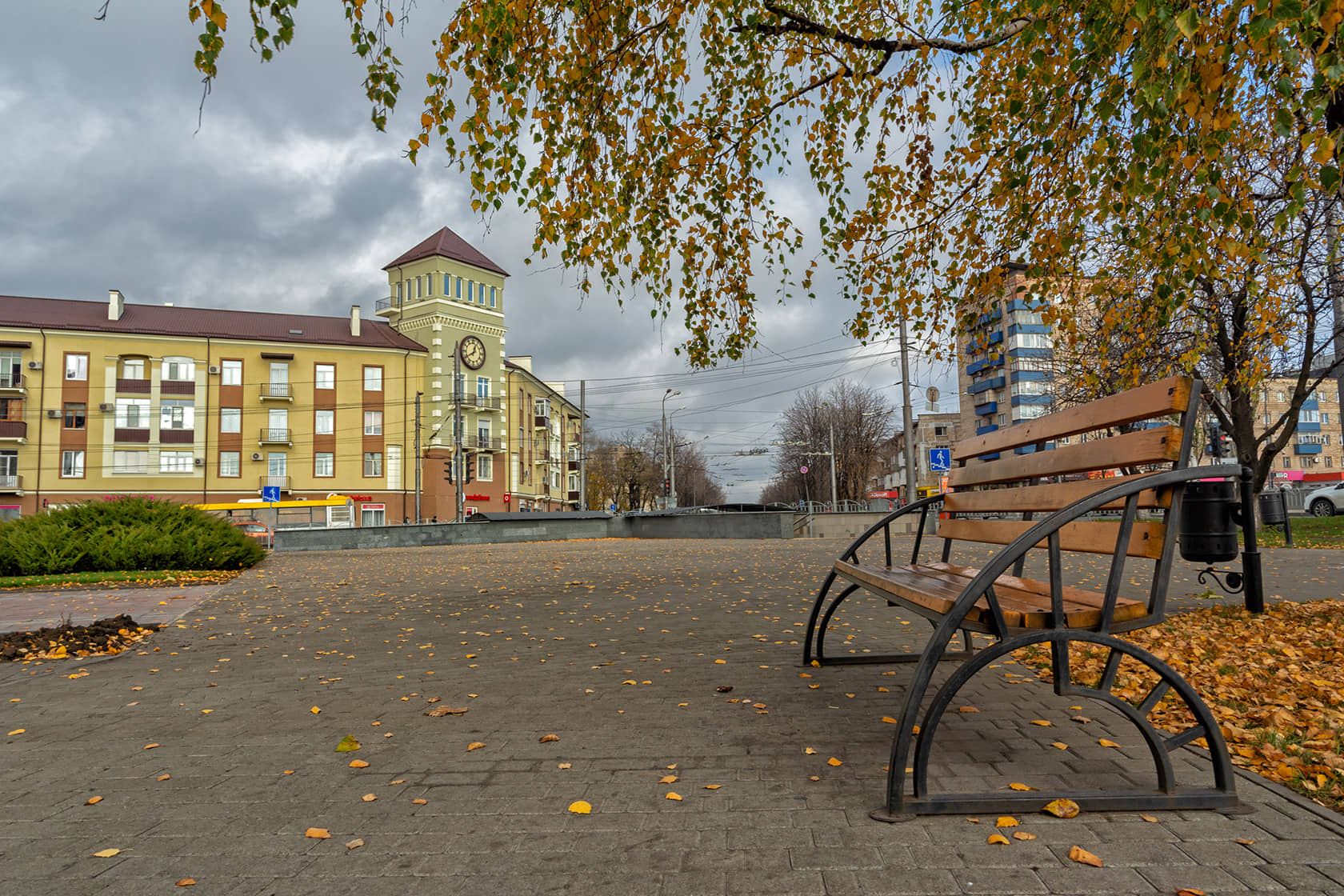
The Christmas tree on Theatre Square. On the evening of 19 December 2021, it fell over due to strong winds. Many Mariupol residents believed that this was a bad omen, but it was quickly forgotten about.
The Drama Theatre. The last performers to appear on its stage – on 22 February 2022 – were Ukrainian funk, hip-hop and rock band BoomBox. Twenty-three days later, the building would be destroyed by Russian aerial bombs.

Yevhen is a qualified welding equipment engineer. He has loved photography and theatre since he was a child.
His photo archives, which by some miracle made it out of the occupied city, are a chronicle of Ukrainian Mariupol.
"It hurts to hear today that the people of Mariupol are to blame for everything. To hear people claiming that everyone in this city is a supporter of the ‘Russian world’.
Being a patriot in Mariupol is a lot more difficult than it is in Lviv, or even Kyiv. But even in the spring of 2014, when armed supporters of the [self-proclaimed] Donetsk People’s Republic were running around the city, not only did people take to the streets with pro-Ukrainian placards, they’d also help our soldiers at the checkpoints, giving them cigarettes, clothes and food."
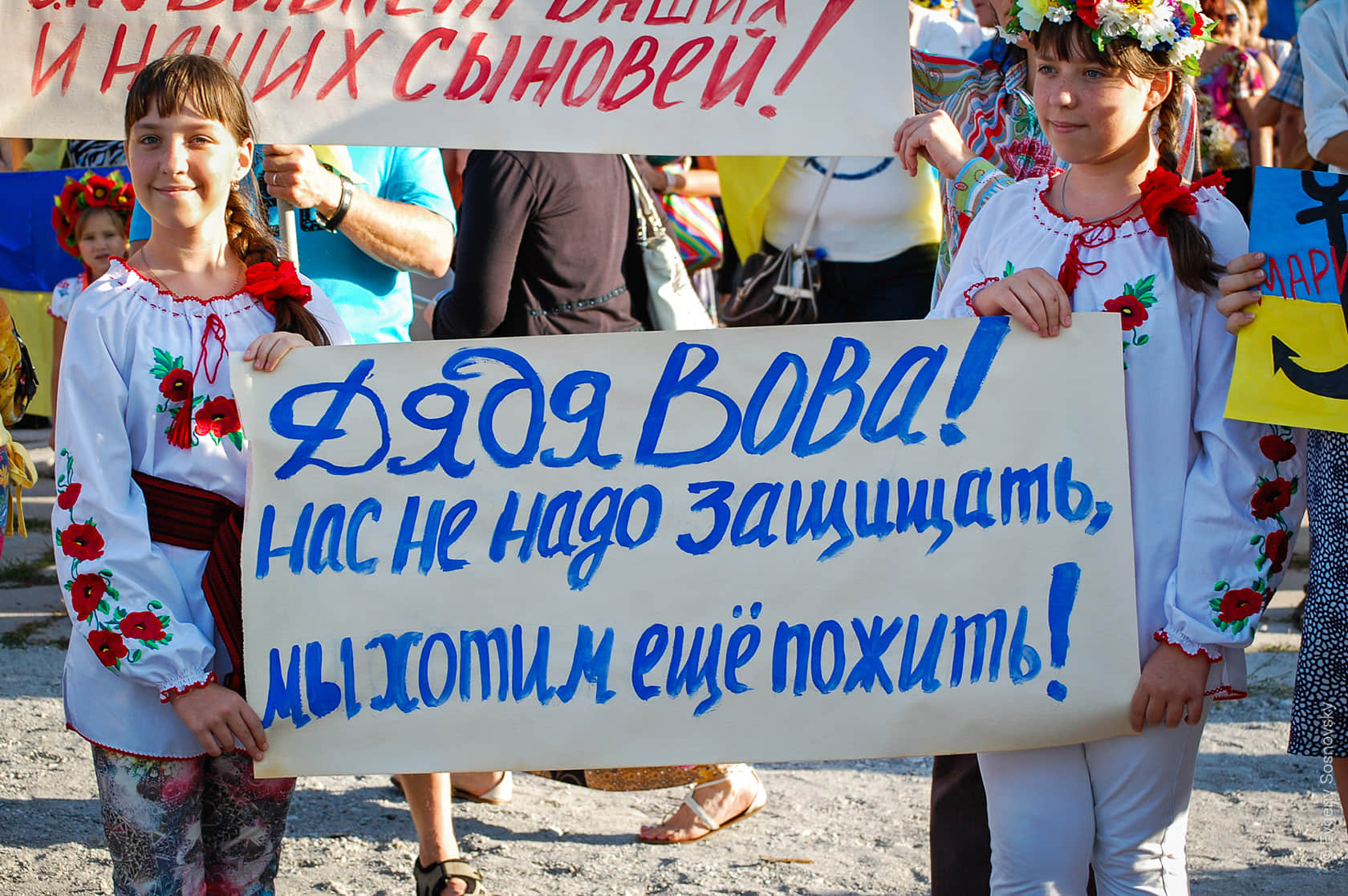
Yevhen Sosnovskyi was one of the crowd of people who marched from the Drama Theatre to the Shevchenko monument waving Ukrainian flags in April 2014. Suddenly two cars drew up and Titushky spilled out of them and started attacking the pro-Ukrainian activists with batons. [Titushky were hooligans and mercenaries associated with Viktor Yanukovych’s regime, which often relied on them to unofficially disperse protesters so as to avoid deploying official state security forces – ed.]
"Their first target was the tablet I was using to film the demonstration," Yevhen recalls. "Then they went for my arm. They broke my arm in two. This happened about 20-30 metres away from the district police department, but its doors were locked. None of the attackers were put in prison – the court failed to find evidence that they’d committed a crime."
"At the time, Yurii Khotlubei was the mayor of Mariupol; he had no idea what to do. He had no support from Kyiv. But he had these guys with guns running around his city. During one of the protests he was repeatedly asked whether he supported the ‘DPR’, and he replied: ‘I support the people, I stand with the people.’ He failed to clarify which people he meant," Yevhen adds. [DPR stands for Donetsk People’s Republic, an illegal, Russian-controlled formation on the territory of Ukraine’s Donetsk Oblast - ed.]
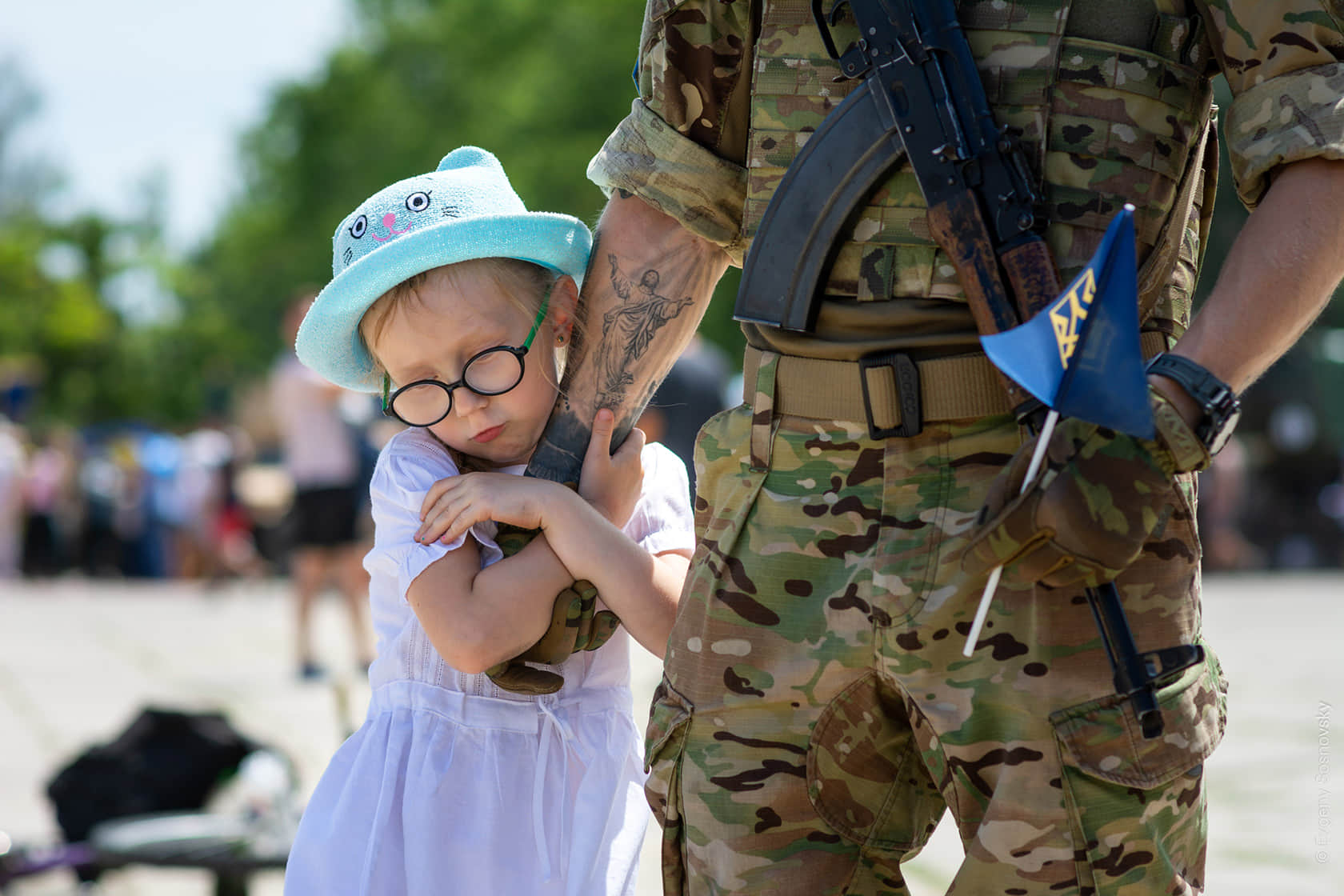
Yevhen believes that until last year Mariupol was more Ukrainian than Kyiv, with Ukrainian flags flying not only above government offices, but also on people’s balconies, in residential neighbourhoods, and in people’s yards.
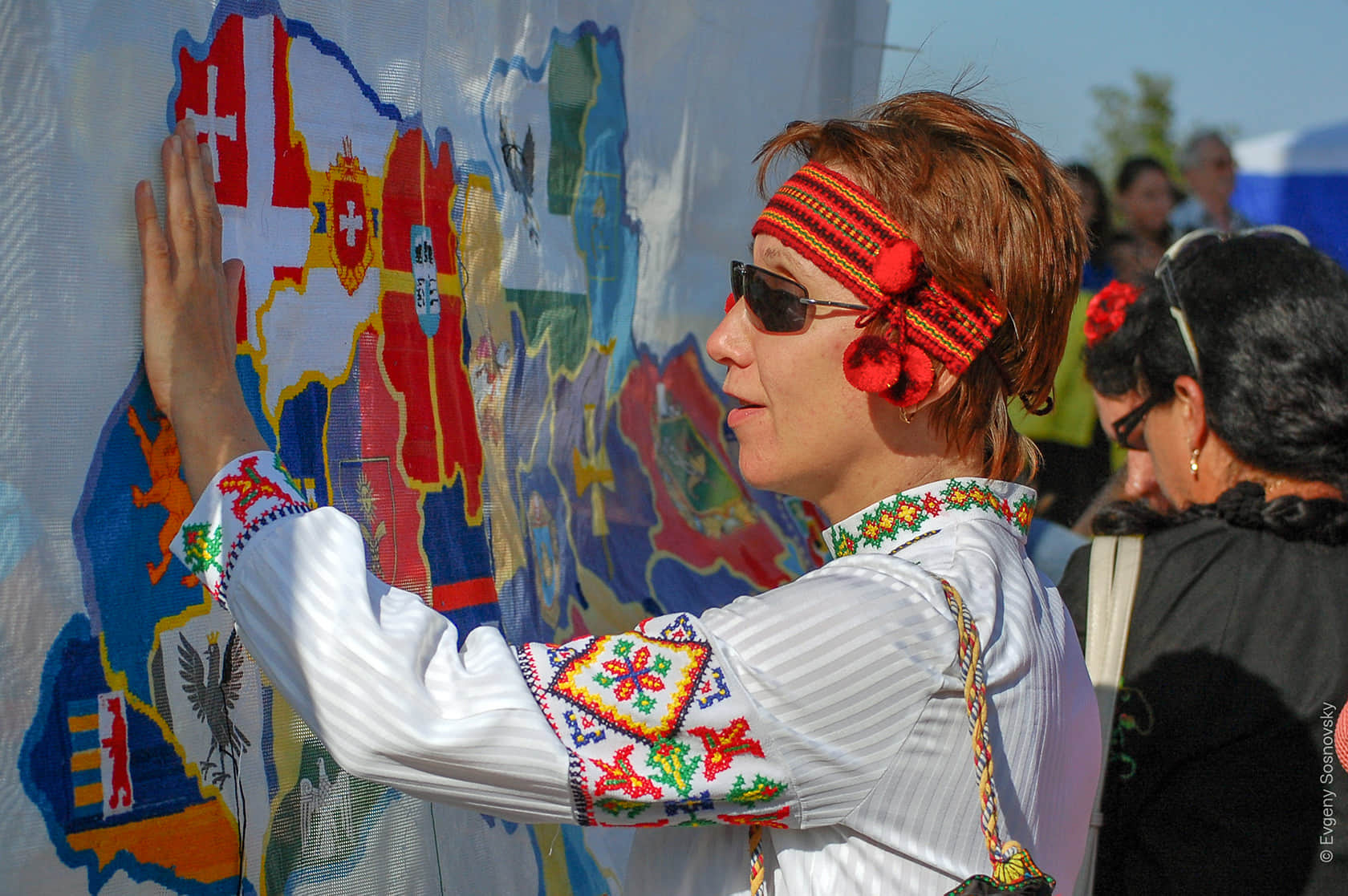
Yevhen saw in the New Year of 2022 at home with his wife. It was an ordinary New Year’s Eve, a family celebration. He didn’t want to think about anything bad.
A few days before, as was his annual tradition, he’d taken pictures of his city – the skating rink, the festive lights, the New Year decorations, the smiling people.
One photo, which he posted on Facebook, shows the city’s Christmas tree in front of the National Drama Theatre, with "2022" spelled out in huge digits. He captioned it: "Four days to go… Mariupol, 27 December 2021".
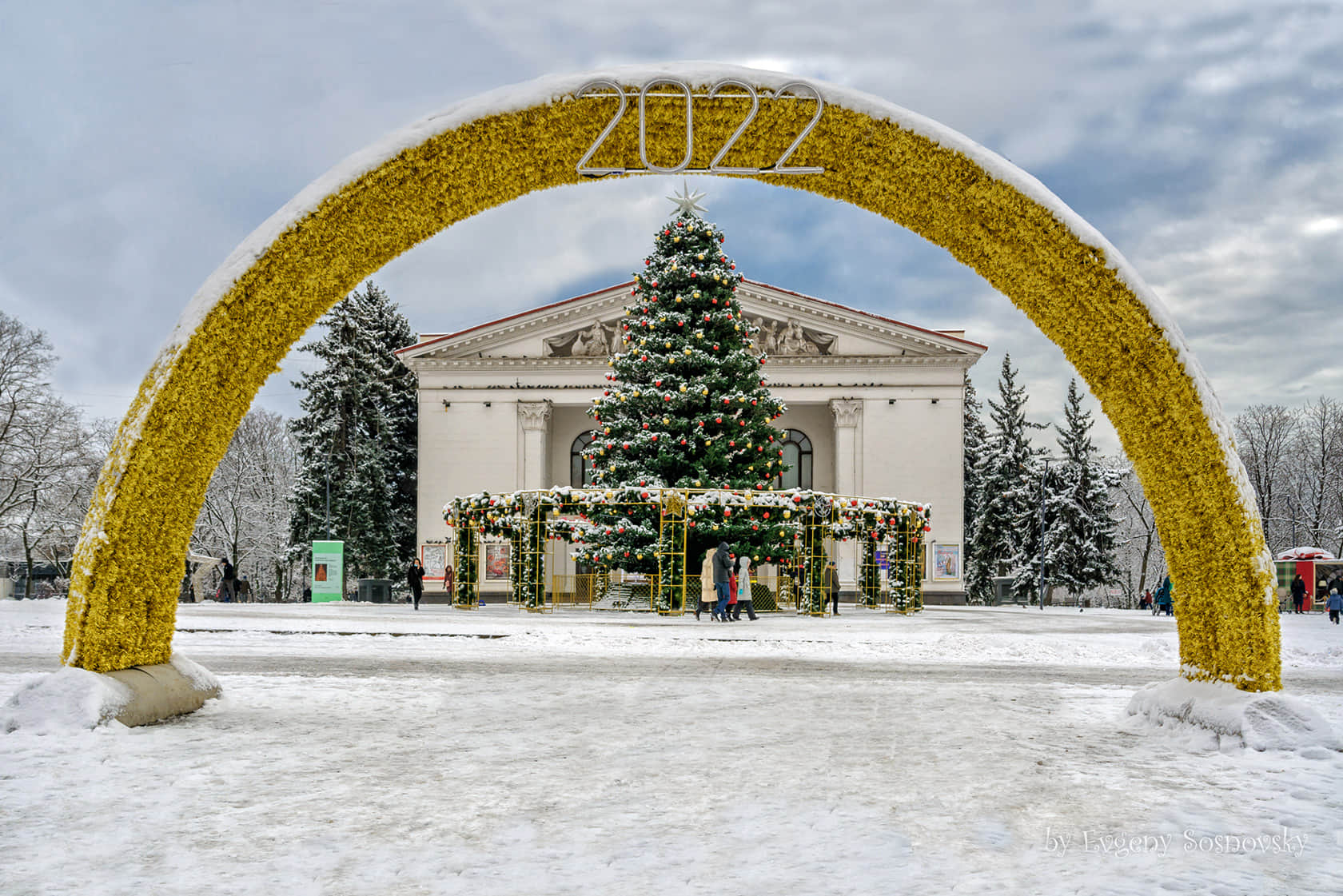
"You walk past dead bodies on the street without looking at them"
"Boom, and that’s the end of us! And nothing can be done about it…"
Yevhen has thought about this refrain from "Avalanche" almost every day since 3 March 2022, the first time Russian forces shelled his apartment building.
"I was reading part three of Atlas Shrugged by Ayn Rand when it all began. I made myself read at least a dozen pages each day, even under shelling, even sitting in our tiny hallway. I told myself that it would all be over by the time I finished the book," Yevhen says.
By then, the air-raid sirens no longer disturbed the people of Mariupol. They’d know they were being attacked from the explosions thundering all around them.
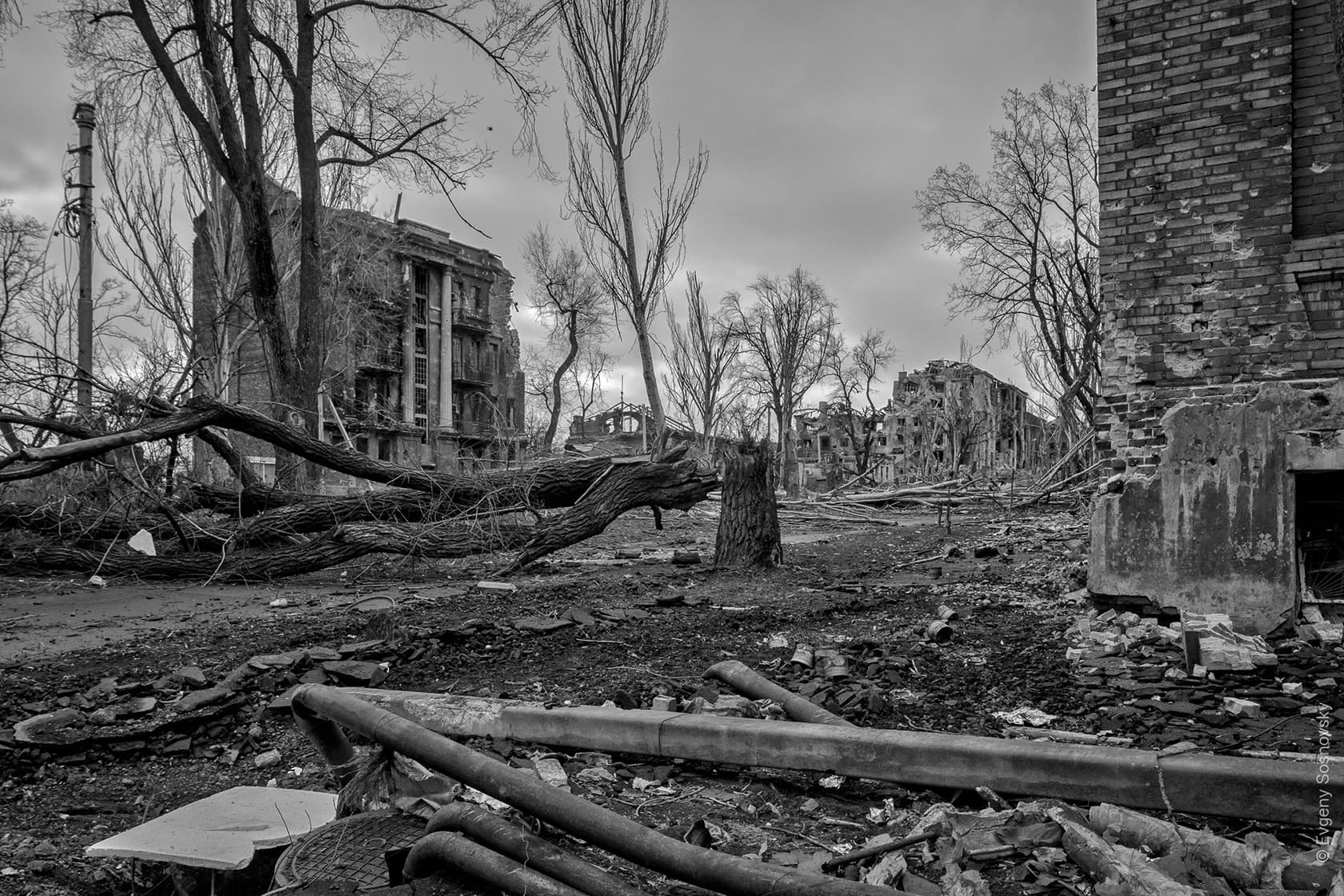
Yevhen left his apartment building on the morning of 20 March to find that only two out of the six apartment blocks in its vicinity were relatively unscathed.
"Some Kadyrovites broke into our apartment at two in the afternoon. They grabbed my arms and inspected them – maybe they were looking for evidence that I’d been using weapons or for [military] tattoos. Then they told us to get out," Yevhen recalls. [Kadyrovites are the forces controlled by Ramzan Kadyrov, Putin’s close ally and the head of the Republic of Chechnya, a constituent entity of the Russian Federation – ed.]
Yevhen and his wife, his niece, and her two children, who were staying with them, all went to the basement of a neighbouring building. That night, Russian shelling caused a fire to break out that melted the plastic pipes, sending hot water gushing into the basement. The people inside had only one bucket of water, so they used earth to put out the fire.
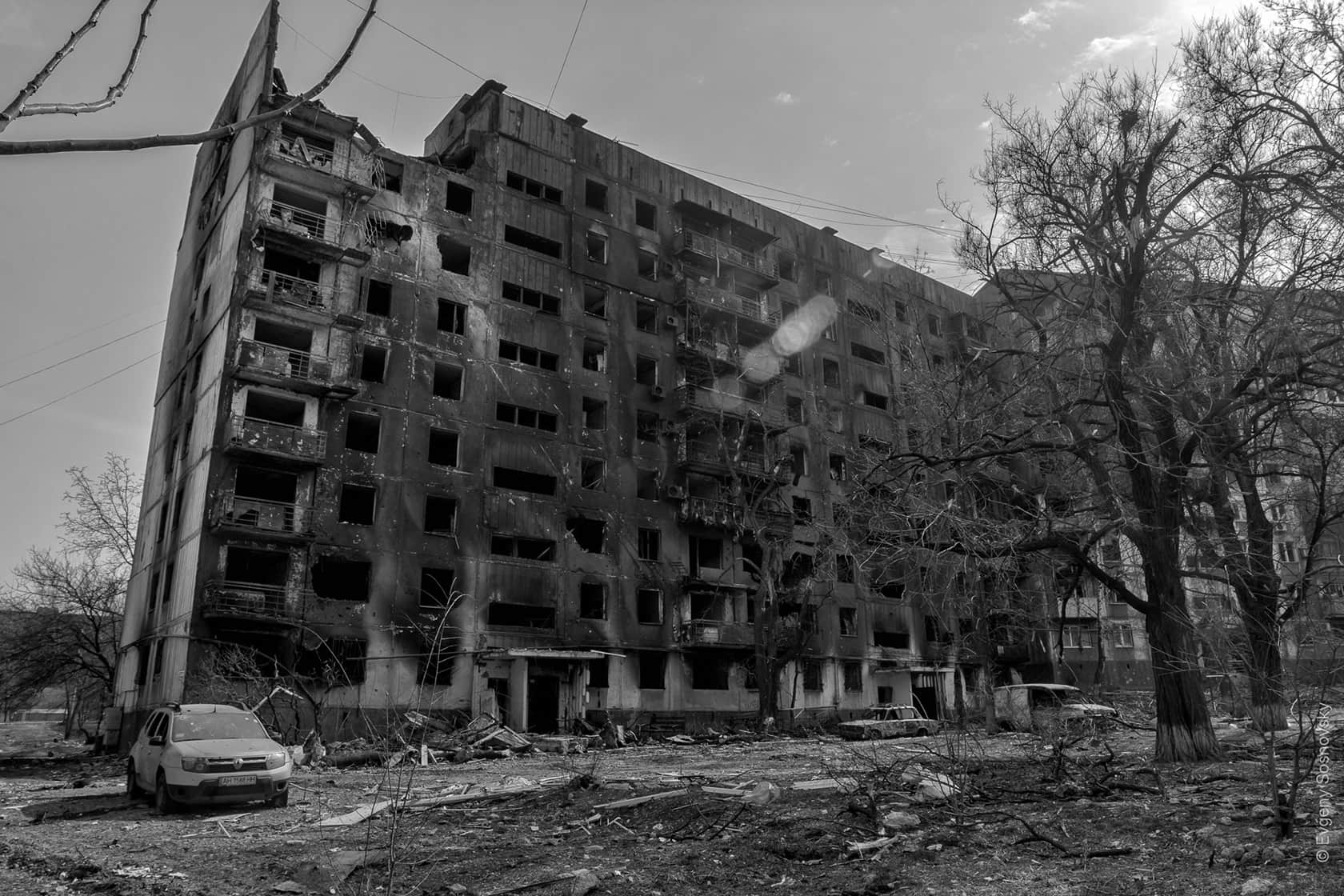
When Yevhen stepped outside the next morning, he saw that all that was left of his apartment building were charred bare walls and windows gaping like empty black eye-sockets.
A badly burned body was lying next to the entrance. It could have been one of his neighbours, but it was impossible to tell.
"Another of my neighbours was a paediatrician. He was working that day. He gathered what was left of his wife in their burnt-out apartment into a small bag. He tried to get a death certificate in some government office. They asked him where his wife’s body was. He got that bag out and said: ‘This is the body’," Yevhen says.
He continues: "At a certain point you just tune it all out. You have only one thought: surviving. Maybe it’s a defence mechanism. Something to help you bear it all. Everything just melts away. You walk past dead bodies on the street without looking at them."
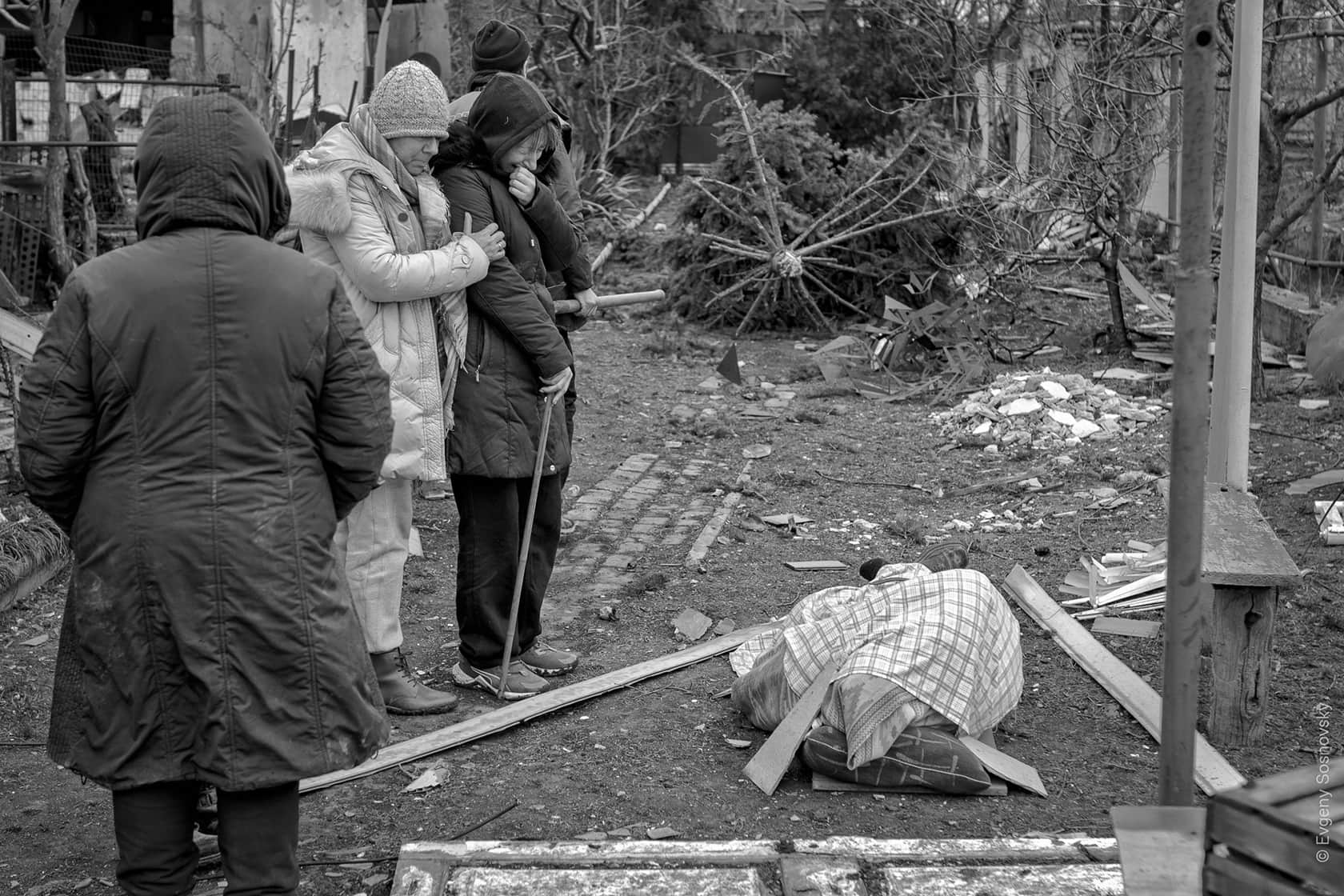
Everyone in that basement was different and acted differently – just as it always is in life, wherever you go. One morning someone gave Yevhen and his family a pot of hot soup. Someone else – a resident of that same building – reported him to DPR officials in an effort to curry favour with the new city government; that person had been promised his neighbours’ apartment in exchange for information.
Yevhen recounts the incident: "He saw that I was taking pictures. I was in the basement and he called me outside: ‘Zhenia, come here, there’s someone who wants to talk to you.’ He was surrounded by armed men. ‘Come on, reporter. Tell us about the pictures you got there,’ they started saying."
"I pretended not to understand," Yevhen continues. "I told them I took pictures of people making porridge, something like that. I must have been convincing because they believed me. Still, they gave me a warning: ‘The Chechens didn’t cut your heads off then? We will.’ Fortunately, though, they let me go.
Of course if they’d gone downstairs to the basement and looked through my stuff, things would’ve turned out much worse for me because my camera was in my bag, and there were pictures of Azov soldiers and Marines on it, lots of blue and yellow.
That day we decided to stop tempting fate, and we left the basement for my mother-in-law’s house, which had pretty much been destroyed," says Yevhen.
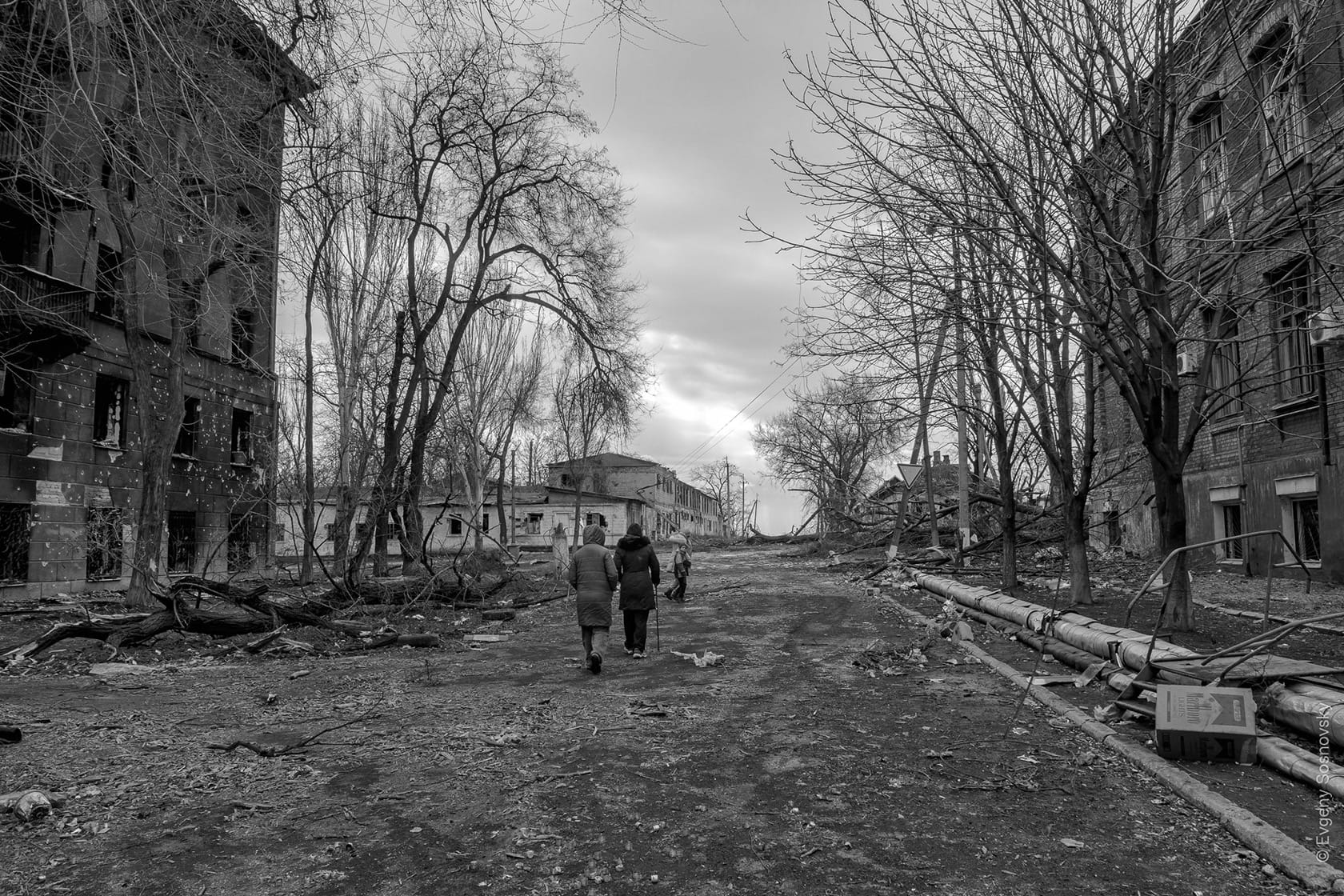
On 20 April, Yevhen’s wife heard somewhere that an evacuation convoy was being organised that day on the western outskirts of Mariupol, heading from Mariupol to Manhush, Berdiansk, Tokmak, Orikhiv and Zaporizhzhia. Around 250 people waited for the evacuation buses, but they never showed up. The same thing happened the next day, and the day after that.
"In the end we decided to get out on our own. We looked around for private services. One person asked for $400 per person and said we’d have to undergo filtration at the Russian checkpoints. Most likely, I wouldn’t have got through the filtration process. My views are widely known, and my photos are on Ukrainian websites – all you need to do is google my surname," Yevhen says. [Filtration is the process whereby people passing through Russian checkpoints have their phones confiscated and their social media accounts examined; they are undressed and checked over for tattoos that might suggest military affiliation and bruises that might suggest the recent use of weapons – ed.]
"We managed to find a guy who agreed to get us out of the city without [going through] filtration, using some back roads. It’s not hard to imagine what Russian forces would’ve done if they’d found my photographic archives. I knew it was a huge risk [to bring them along], but I couldn’t leave them behind. Those photos aren’t just part of my own biography – they’re part of Mariupol’s history," he adds.
On 20 April, Yevhen, his wife and his 90-year-old mother-in-law walked away from what was left of his mother-in-law’s house in a residential neighbourhood of Mariupol, hoping they’d be in Zaporizhzhia by nightfall. They didn’t reach it until 3 May, after having gone through countless Russian and DPR checkpoints and seemingly every circle of hell.
The first one shows him out on his morning run along the coast of the Sea of Azov, before the full-scale war. The second one is of him five months later. The pictures show two faces of the same man: the face of peace and the face of war.
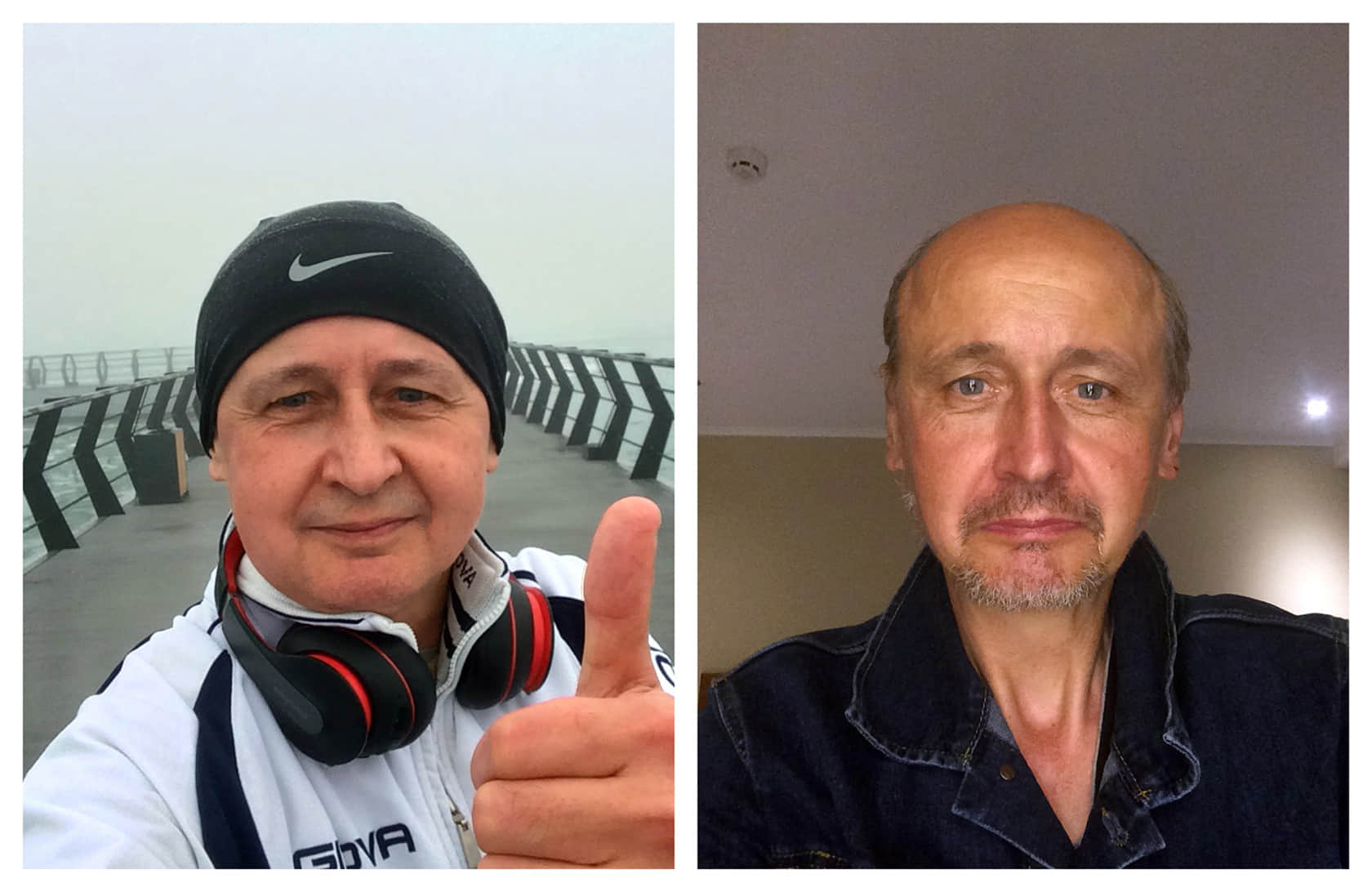
"I’m a bit hard of hearing now, but I’m alive"
September 2023. "Faces the Colour of War", a theatre performance, is being staged at the Lavra Gallery in Kyiv. The set is sparse and there are only a few dozen chairs for the audience.
The actors play themselves, if "play" is even the right word here.
Most of them were in Mariupol during the siege and the occupation – as was the director, Oleksii Hnatiuk.
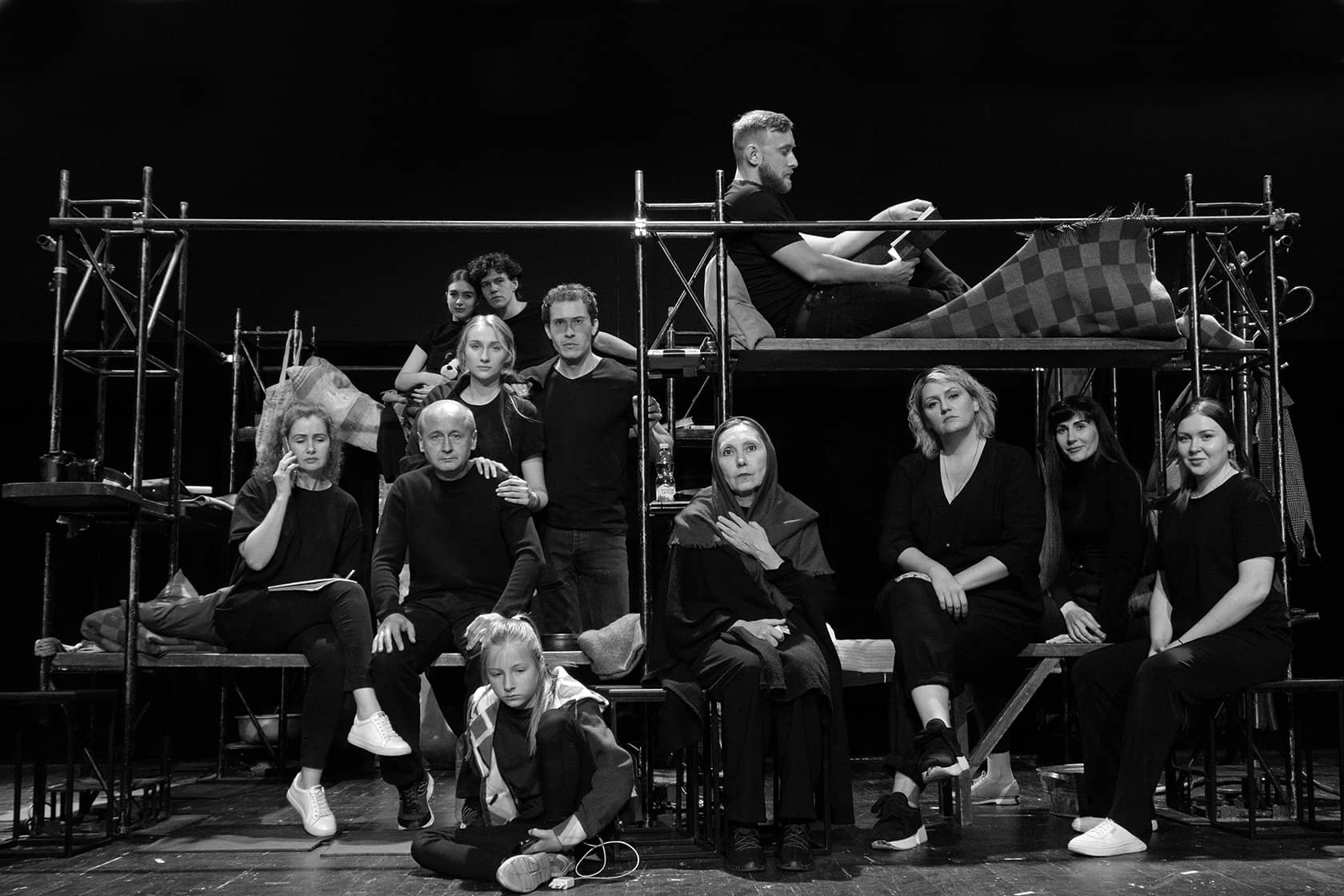
"Recently, we tried to bury two women who were killed by a Grad rocket, but we couldn’t: the ground was hard from the frost. Their bodies are in bags, stacked on a bench," an actor tells the audience.
"We ate a dog, too. We didn’t kill him, he was killed by debris and rubble, but we did eat him. I think that was the moment a part of me died. I no longer know how to smile. I’m glad to see snow and rain, because they’re a source of drinking water, but I can’t smile."
"People have heard about the tragedy of Mariupol, but for the most part they can’t imagine the catastrophic scale of it," Yevhen says. "When ‘Faces the Colour of War’ was first performed last July in Kyiv’s Theater on Podil, we had people come up to us afterwards and ask if it was true we didn’t have food, if it was true we had to eat a dog."
Yevhen has been living in Kyiv since May 2022. He doesn’t rush to get to a shelter when he hears an air-raid siren. He believes that if he survived Mariupol, fate is watching over him – maybe so that he can share the city’s tragedy with the rest of the world.
Sometimes he dreams about Mariupol: "You hear loud bangs, and you’re trying to run somewhere, trying to save yourself and your kids. But – as usually happens in dreams – your legs get caught somehow. You’re trying to take a step but you can’t. And you realise it’s starting all over again…"
"I’m alive… Can you hear me? I’m alive!... Yes, this shit exploded right where I was. The building was razed to the ground. I was buried under the rubble. At some point I thought that was it, that I’d never see you again…
But here I am, alive! A bit hard of hearing now, but alive!... I got out. I couldn’t stay there. I couldn’t leave you, I couldn’t live without you. I’m alive… Alive," Yevhen says from the stage, almost screaming.
After he got out of Mariupol, Yevhen was in great demand with journalists. They’d line up for interviews and ask for pictures from his Mariupol Diary. He didn’t turn anyone down. The world has to know.
As time passed, however, fewer and fewer people wanted to talk about Mariupol. Your self-preservation instinct tells you it’s better not to peer into that abyss – if you don’t want it to peer back at you, to crawl inside of you and stay there forever.
The city, now occupied by Russia, only appears in the news if it’s hit by explosions or visited by Chinese bloggers who sing "Katyusha" – a famous Soviet song from 1938 associated with World War II – in the ruins of the National Drama Theatre.
Last autumn, Yevhen talked to a German journalist – it was a long and difficult conversation about his life in the besieged city. The journalist then disappeared. In January 2023, he wrote to Yevhen.
"I’m very sorry, but I’ve been told the article can’t be published. The reason is, the material is too old and is no longer relevant. I’m sorry…"
Mykhailo Kryhel, Ukrainska Pravda
Translation: Elina Beketova and Olya Loza
Editing: Teresa Pearce